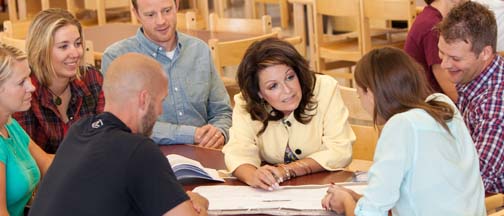Thursday, February 11, 2016

When University of Lethbridge professor Pam Adams was a child she was forever asking “why?” The curiosity she called upon her teachers to satisfy earned her the title “the contrarian,” but her inquiring mind grew. It subsequently informed her career as an educator. Now, as an educator of educators, she encourages her own students to ask “why?”
Inquiry-based learning forms the foundation of Adams’ research investigating the impact on students and teachers of self-directed professional development incorporating teamwork, dialogue, and reflective practices.
“Teaching is learning,” says Adams. “All effective teachers are, at heart, curious learners.”
Adams’ work with teachers, pre-service teachers, principals, and school divisions in more than one hundred schools across five districts suggests that when teachers are given ownership over their professional development they are more likely to apply what they learn and continue sustained professional growth throughout their careers. Participants report that site-embedded learning is more sensitive to workplace needs and more conducive to collaboration and accountability between colleagues. “There’s something that happens when people are in a room together,” says Adams, who notes that productive discourse in an atmosphere that celebrates curiosity contributes to risk-taking and innovation in the classroom.
To illustrate and reinforce Adams’ approach, UofL Professional Semester III interns in her study piloted a Professional Learning Guide using inquiry-based learning. They also completed inquiry projects, which they presented to schools and to Alberta Education.
The role of school and district leadership in supporting professional development is significant. Administrators who themselves pursue ongoing professional development model the practice for teachers, who in turn model it for pre-service teachers and intern mentees. Division leaders who regularly visit schools and classrooms contribute to a culture of learning that permeates entire systems and leads to education’s ultimate goal: increased student learning.
Adams’ advances in developing sustained, inquiry based professional learning have garnered international attention. “I love learning and I love helping others liberate their curiosity,” she says.
In The Essential Equation: A Handbook for School Improvement, Drs. Pam Adams and David Townsend distill over twenty-five years of experiences – with more than 300 schools – into a publication that captures pragmatic and theoretical methods that empower educators to take action.
--------------------------------------
For more information contact:
Darcy Tamayose
Communications Officer
Faculty of Education
(403) 332-4550
darcy.tamayose@uleth.ca
Turcotte Hall - T1H 417